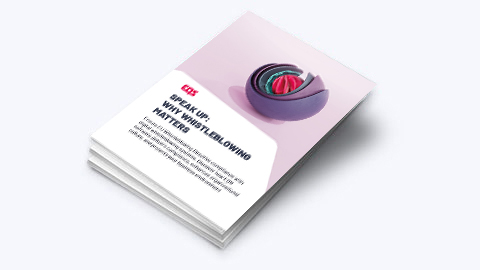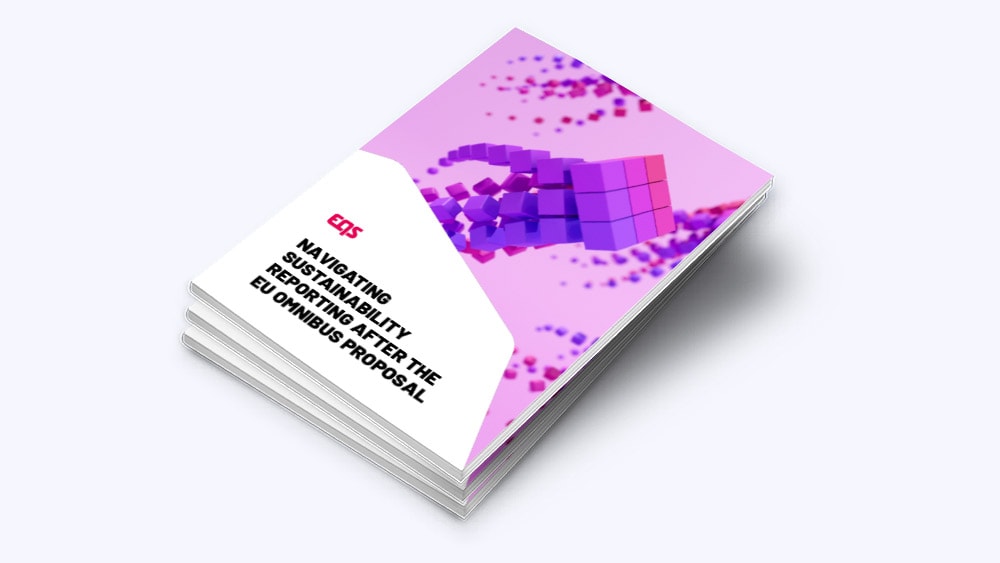Revisiting Discussions Around Diversity in Compliance at ECEC 2022
ECEC 2022 was a highly diverse event and overcoming discrimination in the compliance sector was a topic of extensive discussion.

Out of 83 speakers at the European Compliance and Ethics Conference 2022, 41 were women, many of whom were from diverse backgrounds. That is similar to the US compliance industry where women account for an impressive 52.9% of employment. Despite that figure, the sector is still plagued by the same problems affecting other industries, particularly a blatant and growing gender pay gap. Such issues were high on the agenda at ECEC 2022 where two of the most engaging talks were held by Roselyn Baah and Sandra Mori.
Roselyn Baah’s session on diversity in compliance
Founder of the GRC Network Roselyn Baah held an interesting session on diversity in compliance and how it is more than just lip service. She started by outlining how diversity comes with a huge mandate and often proves an uncomfortable subject for some to understand and discuss, especially when it comes to areas like escalation.
Roselyn explained that diversity is all about culture, something that is intrinsic to the DNA of any organisation. It is all about fostering and cultivating the right behaviour and actions. Diversity is established where a culture exists that includes people from different backgrounds, be it age, gender, race, experience and mental or physical wellness.
Diversity is more than just a box to be ticked and it needs to be reflected by an organisation’s culture, something that can be achieved by taking small progressive steps.
Diversity does not always look the same
Roselyn highlighted the state of diversity in compliance by citing a 2020 International Compliance Association survey among 300 compliance professionals which established the following:
- 38% experienced discrimination at some point in their careers
- 50% said their company is fully committed to diversity and inclusion
- 37% said more should be done to advance diversity and inclusion
- 13% said diversity and inclusion had not been adequately addressed at all
When it comes these issues, Roselyn cited her own struggles as a black woman originally from Ghana who moved to the UK. While she may have experienced the same workplace challenges as a UK-born black woman, there would be key differences due to growing up in different places and different exposures.
As a result, she advises companies to avoid bundling groups together and rather to focus on their specific issues. An example here is the term BAME (Black, Asian, Minority, Ethic Groups) that are amalgamated for one purpose, even though the nuances that each one has to deal with are very different. This limits company’s effectiveness, a problem that can be remedied through a solid speak up culture and having open dialogue.
The Black Lives Matter and MeToo movements have normalised some of these conversations and they have empowered those speaking about topics such as corporate sexual harassment and racism. Small progressive steps can lead to the creation of safe spaces and internal networks where such concerns can be raised. Formal channels such as a whistleblowing system can help people share their concerns without having to worry about repercussions while also demonstrating a commitment to fostering a culture of inclusivity.
Diversity should not be a burden for HR alone
Roselyn emphasised that the diversity mission should not prove a burden for HR and/or leadership teams alone. Building an inclusive culture is actually everybody’s responsibility. That being said, the tone must be set from the top and trickle down through the organisation so that those values are living and breathing.
For HR and leadership to do an effective job, the compliance department also has to have a role in design, implementation and holding others accountable on diversity issues. This can be achieved in many ways such as monitoring employee responses to policies, programmes and training sessions. It is also important to assess recruitment efforts and to gauge whether there are barriers to hiring such as unconscious bias and poor composition of interviewing panels.
Regarding retention efforts, regular surveys should be conducted with employees while exit interviews should dissect any issues that have arisen. Staff should also be held accountable for upholding a firm’s values and policies. To ensure policies are living and breathing in an organisation, enforcement is a driving factor.
For everything to be effective, Roselyn says that compliance also needs to be diverse themselves. She highlights the importance of Cognitive Diversity which is the inclusion of a diverse range of backgrounds, expertise and different problem-solving styles. This allows teams to see issues through a wider lens and take proactive and reactive steps to rectify them.
The role of the GRC Network
Roselyn is the founder of the GRC Network for professionals working in the Governance, Risk and Compliance space within financial services. It has a general mandate for career advancement, knowledge sharing and increased diversity and inclusion within financial services. From a diversity perspective, it is seeking to provide visibility and accessibility to senior leaders from diverse backgrounds within GRC.
It is also empowering its members to own their differences and experiences and navigate related challenges. Finally, it is raising awareness about the compliance industry among people from lower socioeconomic backgrounds.
Sandra Mori: Defining compliance and doing the right thing
Italian lawyer and experienced compliance professional Sandra Mori took to the stage to deliver an interesting talk on how diversity and inclusion are much more than a compliance issue. Every company has to make an effort to place both values at the very heart of their business.
Sandra got started by defining compliance as an action, something concrete and how it is the act of complying and obeying a desire or rule. However, it also has a more technical meaning of adhering to regulations, requirements and industry standards. While most companies state that compliance means doing the right thing, whether it is for the environment or society, many people fail to ask themselves what the term really means.
While it may seem relatively straight forward and an employer provides a certain amount of guidance, this is not always the case. Many people realise that while they are being held to good conduct by their own organisation, it may still have disparities or employ discriminatory practices and this remains most common with gender inequality.
Examining the gender discrimination problem
Sandra explained that the gender pay gap in Europe is approximately 13% and that the figure increases greatly in countries with advanced economies such as Denmark, France and the Netherlands. She is also certain that in most companies across the continent, the vast majority of recent promotions were given to men.
Sandra defines gender discrimination as an employer treating someone differently on the basis of their sex. Some employers still allow or ignore sexual harassment in the workplace or employ rules putting women at a disadvantage and many of these actions are against the law. Some companies have rules, codes and videos raising awareness of problems such as sexual harassment but these issues nevertheless persist despite those measures.
Implementing a credible compliance programme
How can a company be credible in implementing a compliance program when discrimination is tolerated and rooted in its structure? It is paramount to first analyse the business and work to effectively eliminate organisational non-compliance immediately. While that process costs a lot of money, many companies have still gone through with it.
Take the example of bridging the gender salary gap from one day to the next – this would be an incredibly big investment for a large company. Nevertheless, a company can start the process and initially focus on eliminating organisational non-compliance before concentrating on the wider compliance programme.
This should not be carried out just because laws exist prohibiting gender discrimination in the workplace. As everyone already knows and hears, a healthy working environment requires a company to comply with the general principles of equality, fairness and non-discrimination. This goes beyond compliance and becomes almost biblical. For Sandra, compliance simply is not enough – before they even start talking about compliance, companies must strive to treat people in an equal, fair and non-discriminatory way.
Sandra finished her session by stating that every discussion about diversity and inclusion, especially in Europe, must start with gender diversity. This is still the most blatant disparity in the workplace.
Conclusion
Both speakers delivered engaging talks on the state of diversity in compliance and the work that still needs to be done. Whether it is taking the specific needs of different groups into account or bridging salary gaps before implementing a compliance framework, both sessions left plenty of points for companies to consider. To find out more about women in compliance, make sure you check out our special International Women’s Day interview with a panel of female professionals about their experiences working in the sector.
Key principles of establishing an effective ABC programme





